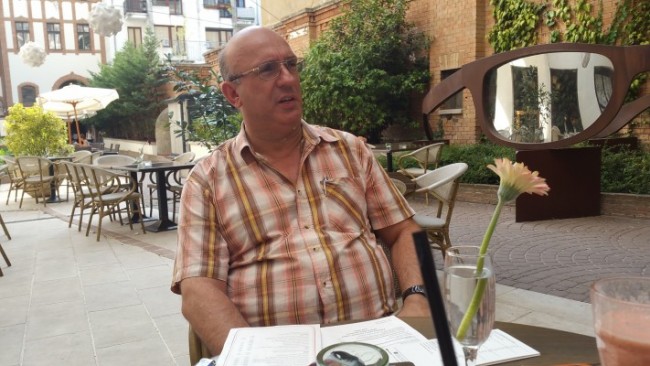One of the hallmarks of the Orbán regime is the systemic and blatant nature of corruption involving key Fidesz political leaders, their oligarchs and the party’s media empire. In this context, one can only imagine how frustrating and infuriating it must be for someone like Zsolt Császy, the victim of a show trial, to have to serve a prison sentence when nothing that he was accused of resulted in any loss for the Hungarian state. In the second part of our interview with Mr. Császy (the first part is published here), he notes: it is not about what scandals the Hungarian media decides to embrace and take an interest in. It is a question of what directives the media organs are given by political leaders on what type of lies or misleading insinuations to promote.
One of the opposition parties that has essentially sided with Fidesz in this show trial has been the Politics Can Be Different party (LMP) and in particular its former leader, András Schiffer, who happens to be a lawyer by training. In some statements, LMP politicians went as far as to suggest that the sentence handed down was too soft. Mr. Császy offered to share whatever documentation and information he had on the trial and the case with LMP. There was even a planned televised debate on the issue with a representative of LMP, but the party ultimately refused to participate.
“It is not necessary to believe what I say; But not even to listen to me, not to give me the opportunity to share my arguments?”—remarked Mr. Császy. Referring back to a recent commemoration of Hungary’s martyred revolutionary prime minister Imre Nagy, who was sentenced to death after a show trial, Mr. Császy quoted the words of the communist era judge, Ferenc Vida: “A show trial is a show trial, because there is a concept and the court pays attention to the evidence that fits into this concept while those that do not fit, are not considered.”
“In our case, this was even more colourful in that there were no facts that were taken into consideration, but there were instead thoughts and notions. This is why I said: if they knew better what I had thought than I myself did, then let’s change places. They can sit here on the defendant’s bench and they can convict themselves. Life would be much easier for me and for them as well,” added Mr. Császy.
The investigators of the Orbán regime are too lazy to even beat people, in the hope of extracting the confession that the prosecutor wants or to provide a false witness. They also simply ignore all evidence that goes against their preconceived notion. Instead, they take the concept that they have previously developed, whether there are real facts or not.
“In the initial verdict, I discovered that they are calling me Katalin and that I am a woman. I also found out that I manipulated something, but there was no information on when, with whom and where,” noted Mr. Császy.
As in North America, the Hungarian Criminal Code requires that guilt be proven beyond a reasonable doubt. This is the foundation of a state built on the rule of law, yet it is clearly a principle no longer respected in Hungary.
“A hallmark of a totalitarian regime is when the political leadership wants to pass judgment over economic, artistic and other matters. At the time of the regime change in 1989, we wanted to ensure that this could not happen again. We wanted an independent society, where in certain issues the political powers at be cannot interfere. When political powers interfere in these areas, that system is called a dictatorship. And this is where we are now,” explained Mr. Császy.
Mr. Császy also spoke about the personal impact of this show trial and impending imprisonment on his family and on himself. The second and final part of this video interview is now available to our readers.
Eszter Garai-Édler and Christopher Adam




